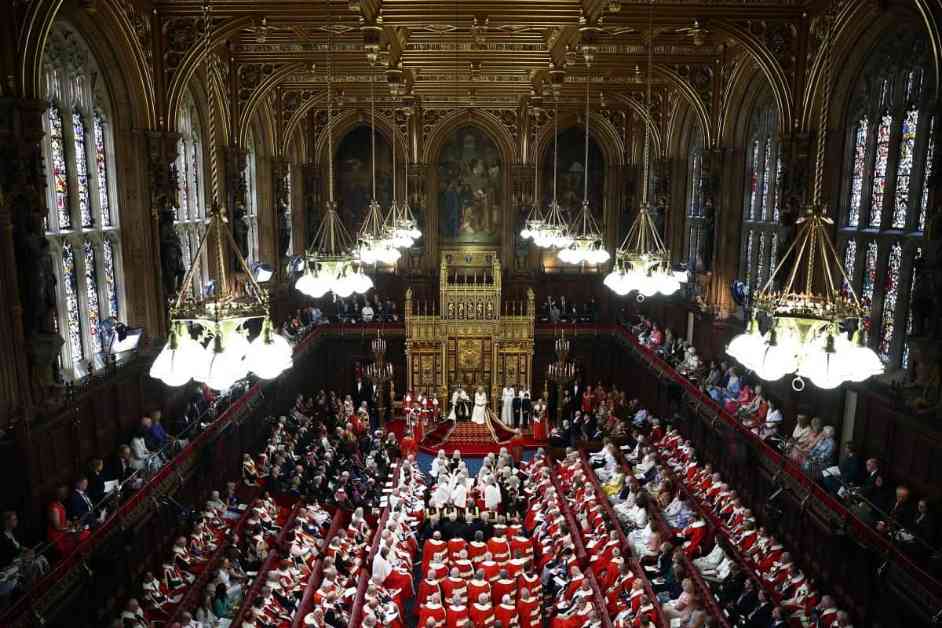The Government is set to take a significant step towards reforming the House of Lords by introducing legislation to remove hereditary peers from the upper chamber. This move, which aligns with one of Labour’s manifesto commitments, aims to modernize the institution and bring about much-needed change in the UK’s political landscape. While critics have labeled it as “vendetta” and “political vandalism,” proponents see it as a crucial reform to align the second chamber with modern democratic principles.
Background and Rationale for Reform
The presence of hereditary peers in the House of Lords has long been a subject of debate and controversy. The hereditary principle, which allows individuals to hold positions of power and influence based solely on their family lineage, has been criticized as outdated and undemocratic. The decision to abolish the 92 seats reserved for hereditary peers reflects a broader effort to address these concerns and bring the House of Lords in line with contemporary democratic norms.
According to Nick Thomas-Symonds, Minister for the Constitution, the legislation represents a landmark reform to the UK’s constitution. He argues that the hereditary principle in law-making is out of touch with modern Britain and that individuals should not have the power to shape legislation simply by virtue of their birth. By removing hereditary peers from the House of Lords, the government aims to ensure that political representation is based on merit and expertise rather than inherited privilege.
Historical Context and Previous Reforms
This isn’t the first time that efforts have been made to address the issue of hereditary peers in the House of Lords. The last Labour government took steps to remove most hereditary peers from the chamber in 1999, leaving 92 seats as a temporary compromise. However, the continued presence of these hereditary peers has been a point of contention, with calls for further reform growing louder in recent years.
The current composition of the House of Lords reflects a mix of political affiliations, with around half of the hereditary peers being Conservatives and the rest mainly independent Crossbenchers, Labour, and Liberal Democrat peers. Notable figures among the hereditary peers include Lord Attlee, grandson of former Labour Prime Minister Clement Attlee, the Duke of Wellington, and Viscount Stansgate, whose father Tony Benn famously renounced his peerage to serve in the House of Commons.
The legislation to remove hereditary peers from the House of Lords is part of a broader effort to reduce the size of the second chamber and bring about meaningful democratic reform. While some critics have raised concerns about the impact of these changes, proponents argue that it is a necessary step towards creating a more inclusive and representative political system.
Implications and Future Prospects
The decision to remove hereditary peers from the House of Lords has significant implications for the future of the UK’s political landscape. By eliminating positions based on inherited privilege, the government aims to create a more meritocratic and accountable system of governance. This move is likely to be met with both support and opposition, as it represents a fundamental shift in the way political power is distributed in the country.
Baroness Angela Smith, the Leader of the House of Lords, has underscored the importance of this reform in fulfilling a specific manifesto commitment. While acknowledging the contributions of many hereditary peers to Parliament, she emphasizes the need to complete the work that began 25 years ago. By removing the hereditary principle from the House of Lords, the government aims to bring about a more inclusive and democratic political system that reflects the values and aspirations of the British people.
As the legislation to remove hereditary peers from the House of Lords moves forward, it will be crucial to closely monitor its impact and implications for the UK’s political landscape. While some may view this reform as a necessary step towards modernization and democratization, others may see it as a contentious and divisive issue. Ultimately, the decision to remove hereditary peers from the upper chamber represents a significant milestone in the ongoing process of reforming the UK’s political institutions for the better.





















